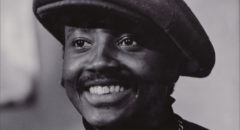
Schizophrenia is a debilitating psychiatric condition, considered a psychotic thought disorder. Its symptoms involve a person’s emotions, behavior, attention, perception, and judgment. A psychotic disorder is one that involves hallucinations (i.e., a sensual perception such as seeing or hearing something that does not exist in a person’s external environment).
The National Institute of Mental Health discovered in the 1960s that Blacks had a 65% higher likeliness of having schizophrenia than Caucasians. Information from a 24-year review of literature from past clinical research studies showed Blacks are diagnosed with psychotic disorders—such as schizophrenia—at a rate of 3 to 4 times higher than Caucasians. These statistics infer that schizophrenia has been evolving into a Black mental health issue… but why?
RELATED: Are You At Risk of Developing Schizophrenia?
The History of Schizophrenia and Blacks
Johnathan Metzl, M.D., PhD., cultural historian and psychiatrist at Vanderbilt University, wrote a book titled, “Protest Psychosis: How Schizophrenia Became a Black Disease.” The book describes underlying cultural influences that led to the misdiagnosis of Black males in the 1960s. A primary institution in Metzl’s book was Ionia State Hospital, considered one of the most notable mental asylums in the country.
The hospital opened its doors in 1885 with the name “Michigan Asylum for Insane Criminals.” Patients committed to the hospital were insane convicts from prisons, criminal sexual psychopaths, mentally ill felons, and those transferred from other mental institutions having homicidal tendencies. Because the hospital also treats those who have no criminal history, the facility eventually changed its name to Ionia State Hospital.
In time, a new patient demographic began emerging at Ionia State Hospital; by the mid-1960s, a disproportionate number of Black men diagnosed with schizophrenia were among its growing population. Metzl explained in his book that after he received authorization to examine the old patient records from the hospital, he discovered many Black men were diagnosed with schizophrenia because of their symptoms and their connections with the civil rights movement.
Many of the Black men were admitted to Ionia because of crimes they committed, which included anything from armed robbery to arrests after involvement in civil rights protests during the 1960s. The Detroit civil rights protests were among the largest (i.e., the Detroit March to Freedom), and most violent, destructive riots in U.S. history.
Documentation inpatient records included entries describing Blacks with schizophrenia as dangerous threats to other patients, staff, and society, had these patients not been institutionalized. Chart entries also included descriptions of patients’ paranoia toward police or hospital staff. This is not to say that the medical professionals who diagnosed and treated the men with schizophrenia purposely dolled out punishments. Many of the mental health professionals truly wanted to help these patients once they were admitted to the asylum. The problem was far more encompassing.
How the DSM Influenced Diagnoses in Black Males
Dr. Metzl discovered an important clue about the growing number of misdiagnosed black males in Detroit who were being labeled with schizophrenia. When he examined the changing language in the primary tool used for diagnosing mental conditions—called the DSM II—he saw more of the big picture.
The Diagnostic and Statistic Manual of Mental Disorders (DSM) had changed the description of a person with schizophrenia from one exhibiting a calm demeanor (such as described in patients who were middle-class housewives), to a person exhibiting “masculinized belligerence.” Specific language in the DSM-II now stated, "The patient's attitude is frequently hostile and aggressive and his behavior tends to be consistent with his delusions." Dr. Metzl found many of the entries in patient charts at Ionia mimicked the DSM II language, particularly when using words such as “aggression” and “hostility,” used to describe schizophrenia in Black patients during the civil rights era.
But, the language in the DSM-II and the subsequent link between insanity and the civil rights movement, was not limited to institutionalized patients. Dr. Metzl also discovered trends in the culture at large.
He explains in his book that the stigma describing schizophrenia as a hostile and violent disorder was found in medical journals, newspapers, magazines, films, and more. He even describes a pharmaceutical advertisement for anti-psychotic medications depicting images of an angry, hostile Black male.
Schizophrenia Diagnosis Blacks Today
To diagnose schizophrenia, clinicians must first rule out other potential causes of symptoms. In a recent, 2019 Science News article, Michael Gara, Professor of Psychiatry at Rutgers Robert Wood Johnson Medical School stated, "There has been a tendency for clinicians to overemphasize the relevance of psychotic symptoms and overlook symptoms of major depression in Blacks compared with other racial or ethnic groups.
A 2019 study looked at nearly 600 Blacks and 1,058 Caucasians.
This study concluded that clinicians diagnosing mental health disorders put more emphasis on the psychotic symptoms than on depression or mania when assessing minority groups (even when the symptoms were very similar to those exhibited in Caucasians who were not diagnosed with schizophrenia. This study suggests a racial bias in diagnosing schizophrenia in Blacks.
MUST SEE: Black Doctors Get Real About Schizophrenia In Our Community (Video)
Consequences of Misdiagnoses in Blacks
Misdiagnoses of schizophrenia can result in severe consequences for patients who may actually have major depression with psychotic features or psychotic disorders; the treatment is very different for these two disorders. Misdiagnosis can result in consequences such as:
- Not receiving proper medication
- Risking worsening of the underlying symptoms
- Risk of suicide (from untreated depression)
- Serious side effects from antipsychotic medications (for schizophrenia)
A Word From Black Doctor.org
If you or a loved one has been diagnosed with schizophrenia, or are scheduled for an upcoming mental health assessment, you may consider letting the diagnostician know that some researchers suggest screening for major depression when evaluating Black patients for schizophrenia.








